| Back to menu Find Cheats Finding cheats requires some knowledge about the hardware and software but the interface is made as simple as possible. How to find a cheat for a game ? The blueMSX trainer has many options to help you in your quest for cheats. The best way to understand how it works is of course a simple example. So let's see how we can have infinite lives for Gradius 1 - Nemesis 1 - run first the emulator with the game - pause the game by pressing on F9 - start the trainer by using the shortcut RCtrl+RSft+T - go to the "Find Cheats" panel - click on "Snapshot" to take a first snapshot - here's the result : 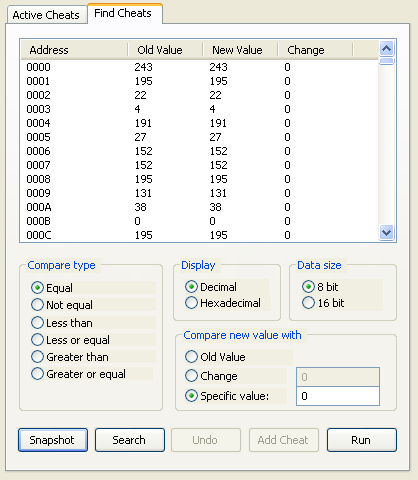 - as the game begins with 3 lives and the value 2, select "Equal", enter 2 as "Specific value" and click on "Search" 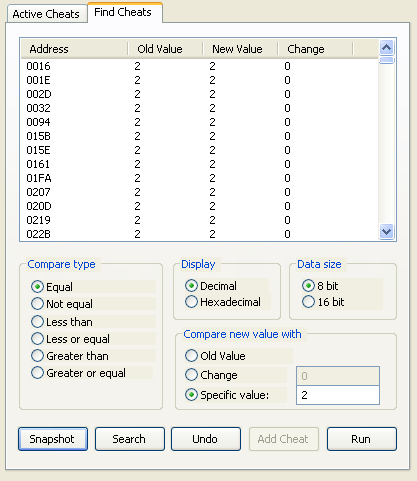 - click on "Run" to play a little and lose a live, then press on F9 - we need now to compare the old value (2) with the new value that must be smaller than the old value : select "Less than" and "Old value", then click on "Search" 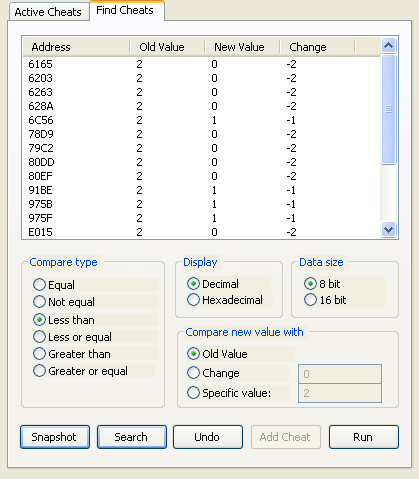 - click on "Run" to play a little and lose another live, then press on F9 - we need now to compare the remaining old values with the new values that must be smaller than the old values : select "Less than" and "Old value", then click on "Search" 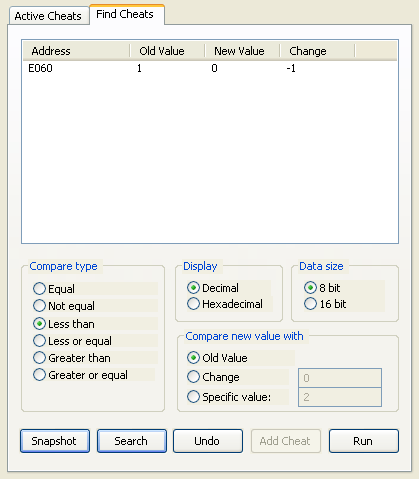 - Bingo ! We have found the memory address that stores the lives for this game - Double-click on the cheat address 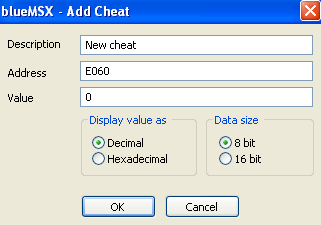 - Enter a description and a cheat value, then click on "OK" : your new cheat will appear in the "Active Cheats" panel of the trainer, but it's not yet selected How to test a new cheat for a game ? - Select the new cheat in the "Active Cheats" panel and click on "Run" - Check if the cheat works without provoking game hanging or bad display - Check if the cheat corresponds to your expectations In the above example, if you have choosen 99 as decimal value, you will be surprised to see that you have only 63 lives. The explanation is simple : some games store the lives under an hexadecimal form. The solution is to choose 99 as hexadecimal value (or 153 as decimal value). Remarks : - You will also encounter games where some data are stored in 16 bit form by using 2 neighbour addresses. - Some cheats use 2 or more addresses at different locations of the memory. The different options for your quest of the good address(es) - Compare Type : Equal, Not equal, Less than, Less or equal, Greater than, Greater or equal - Display : decimal or hexadecimal - Data Size : 8bit or 16bit - Compare new value with : Old Value, Change (to specify), Specific value (to specify) Back to menu |